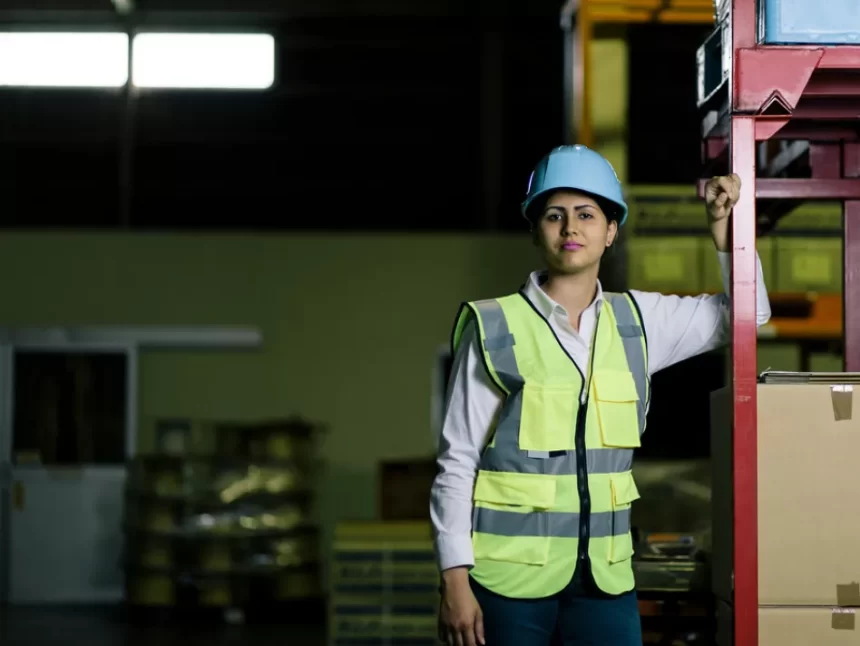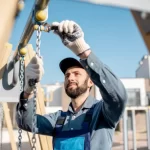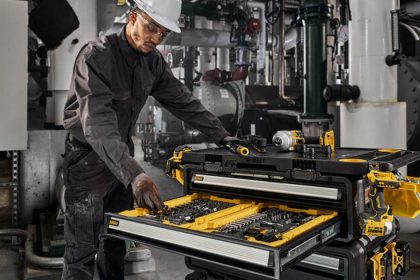The University of Newcastle has launched a new program giving migrant women the skills they need to forge a new career in the construction industry.
Partnering with TAFE NSW, 50 women between 18 and 45 in the university’s Social and Economic Resilience of Young Migrants and Refugee Women Program will obtain a Certificate II in Construction by April 2024.
Taking part in industry placements within construction projects, these lucky participants will be allowed to translate their new skills into real-world opportunities, gain paid jobs and apprenticeships, and even obtain further specialisation.
With 11,000 young migrant and refugee women now living in the state’s Central Coast and Hunter region, the University’s Professor Temitope Egbelakin said she saw an opportunity to help support more females to break into the male-dominated industry.
“This project is something that came out of passion to help not just refugee women, but migrant women as well,” Professor Egbelakin told Build-it.
“We know we have a skills shortage across Australia and we have a lot of women coming here and struggling to engage with a new industry. This program felt like the perfect opportunity to solve both problems at once.
“We provide our participants with opportunities to start over, to build a new life here in Australia. We show them that they can become whatever they want in the construction industry.”
Breaking free of tradition
According to the Professor, migrant women face an uphill battle in breaking into the construction sector.
“When refugee and migrant women enter the country, they are introduced to a whole new way of thinking. Many women find it hard to break free of their traditional roles and embrace new opportunities in the workforce,” she told Build-it.
“While many have husbands that work, some even in the construction industry, we find many women struggle to break free of their traditional housewife mindset. Some don’t even have their own bank accounts.
“We’ve done a lot of workshops with these women and their families to really get our message across that whatever a man can do; a woman can do too.
“At the core of this program, we are encouraging women to step outside of their comfort zone and break free of cultural barriers.”
According to Master Builders Australia, 162 470 women were working within the construction industry across Australia in 2023, accounting for only 12.4 per cent of the total workforce.
Professor Egbelakin says that this mentoring is critical for migrant women entering the construction sector and provides them with opportunities to develop their skills and build relationships within the industry.
“These mentors are passionate and keen to provide support and nurturing relationships and connections for young women seeking to enter and succeed in trades-based careers,” she said.
Saeedeh, a participant in the program, says the program is vital to helping her build a life in Australia.
“I am a person who enjoys physical work, so construction is a perfect chance to use these talents,” she said.
“This program is giving me my confidence back and will allow me to be financially independent, which is a big step forward in life.
“I am looking forward to working hard and making a life that I deserve.”
Professor Egbelakin said the program has seen a lot of support from organisations in the region, recently receiving an $88,600 funding boost from the Newcastle Permanent Charitable Foundation.
Chair of the foundation, Ross Griffiths, said this partnership could make a change for generations to come – and help redefine the typical ‘tradie’ stereotype along the way.
“The construction industry is booming, but it continues to be male-dominated,” Mr Griffiths said.
“This program is aiming to help migrant and refugee women enter the industry with confidence, making them financially independent and able to support themselves and their families.
“And by bringing together these communities of refugee women and tradies, who may not have interacted before, the program is also helping to cultivate diversity.”







